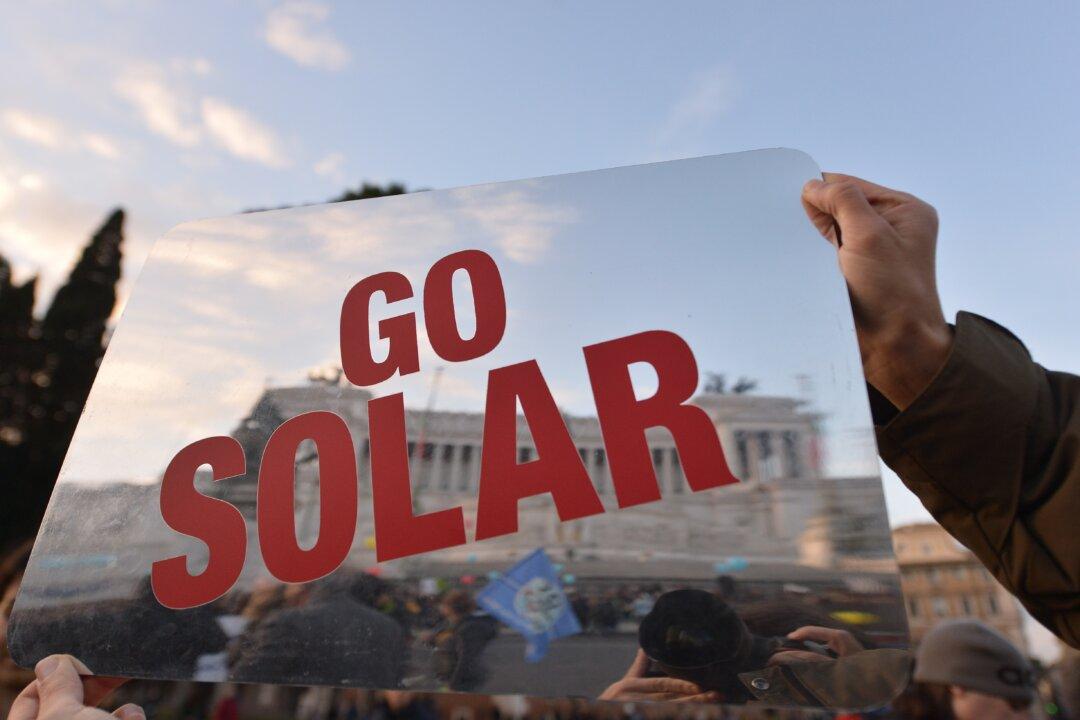PARIS—Government and business leaders are banking on clean energy technology to fight global warming, kicking off this week’s high-stakes climate change negotiations by pledging tens of billions of dollars for research and development.
Microsoft founder and philanthropist Bill Gates, President Barack Obama and French President Francois Hollande will announce the new initiative on Monday, committing to spend tens of billions of dollars for a technological fix to the planet’s climate woes, three current and former officials have told The Associated Press.
“It’s quite a big deal,” said Jennifer Morgan, global climate director for the World Resources Institute. “It brings a new kind of burst of energy into the conference right at the beginning on something very important.”
The U.N. climate summit formally opened Sunday afternoon with a minute of silence for the victims of this month’s Paris attacks and vows not to let terrorism derail efforts to slow or stop climate change.
The “ambitious” effort to develop clean energies initially involves eight countries—France, the U.S., India, South Korea, Saudi Arabia, Australia, Canada and Norway—according to a French official, who asked not to be named for lack of authorization to speak. These countries would pledge to double their spending on low or no-carbon energy, according to an early version of a document obtained by the AP.
President Barack Obama revealed no details Sunday as he traveled to the talks, but wrote on his Facebook page that “we'll work to mobilize support to help the most vulnerable countries expand clean energy and adapt to the effects of climate change we can no longer avoid.”





